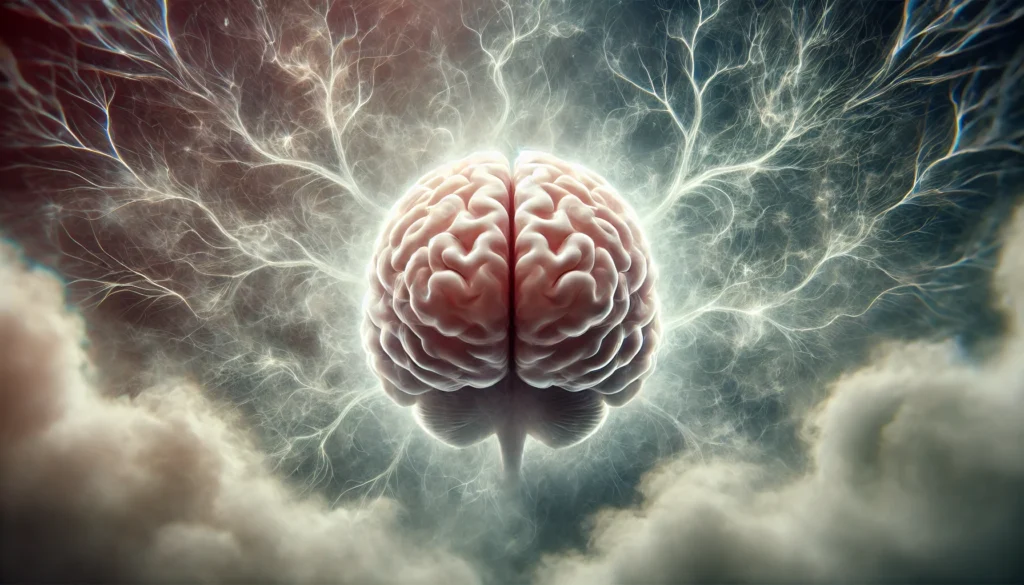In the world of pharmacology, benzodiazepines like Ativan (lorazepam) have long been prescribed for their calming effects. While their efficacy in treating anxiety and insomnia is well-documented, a growing concern is their impact on memory and cognition. This article delves into the intricate relationship between Ativan and cognitive functions, examining both historical context and future implications.
You may also like: Understanding the Science Behind Lost Memory
Understanding Ativan and Its Use
Ativan, known generically as lorazepam, is a benzodiazepine that acts on the central nervous system to produce a calming effect. It is commonly prescribed for anxiety disorders, insomnia, and sometimes for seizure control. The drug works by enhancing the effect of a neurotransmitter called gamma-aminobutyric acid (GABA), which inhibits nerve transmission in the brain, producing a sedative effect.
Mechanism of Action
Lorazepam binds to GABA receptors in the brain, increasing the inhibitory effect of GABA. This action results in decreased neuronal excitability, leading to the sedative and anxiolytic effects observed with its use. The precise interaction with GABA receptors also influences various brain functions, including anxiety regulation and sleep induction.
Common Uses and Indications
Ativan is primarily prescribed for anxiety relief and management of acute anxiety episodes. It is also used in the treatment of insomnia, where its sedative properties help improve sleep patterns. In some cases, it is utilized in the management of seizure disorders due to its ability to stabilize neuronal activity.
Administration and Dosage
Lorazepam is available in various forms, including tablets, injections, and oral solutions, allowing for flexibility in administration based on patient needs. Dosage is typically individualized, starting at the lowest effective dose to minimize side effects while achieving therapeutic benefits.
Historical Context of Benzodiazepines
Benzodiazepines were first introduced in the 1960s and quickly became popular due to their effectiveness and safety profile compared to barbiturates. However, over the decades, concerns about their long-term use and potential side effects, including dependency and cognitive impairment, have emerged. This has prompted ongoing research into their effects on brain function.
Rise to Popularity
The introduction of benzodiazepines marked a significant advancement in the treatment of anxiety and sleep disorders. They offered a safer alternative to barbiturates, which had a higher risk of overdose and addiction. Their rapid onset of action and relatively wide therapeutic index contributed to their widespread acceptance.
Shift in Perception
Over time, the perception of benzodiazepines shifted as evidence of their potential for dependency and withdrawal symptoms became more apparent. Reports of cognitive side effects, particularly with prolonged use, led to increased scrutiny by the medical community. This shift prompted a reevaluation of prescribing practices and encouraged the exploration of alternative treatments.
Regulatory and Clinical Guidelines
In response to concerns about benzodiazepine use, regulatory bodies and clinical organizations developed guidelines to promote safer prescribing practices. These guidelines emphasize short-term use, patient education on potential risks, and consideration of non-pharmacological interventions.
The Science Behind Memory and Benzodiazepines
Memory is a complex cognitive process that involves encoding, storing, and retrieving information. Benzodiazepines, like Ativan, can interfere with these processes, particularly impacting short-term memory and the ability to form new memories. This occurs because these drugs can alter the function of GABA, affecting the brain areas responsible for memory processing, such as the hippocampus.
The Role of GABA in Cognitive Function
GABA is a major inhibitory neurotransmitter in the brain, playing a crucial role in regulating neuronal excitability. Its influence extends to various cognitive functions, including memory consolidation and retrieval. Benzodiazepines enhance GABA activity, which can lead to disruptions in these cognitive processes.
Impact on the Hippocampus
The hippocampus is a critical brain structure involved in the formation of new memories and spatial navigation. Benzodiazepines can affect hippocampal function by altering synaptic plasticity and neurotransmitter release. These changes can impair the brain’s ability to encode and consolidate new information.

Short-term Memory and Anterograde Amnesia
Benzodiazepines are known to cause anterograde amnesia, a condition where the ability to form new memories is temporarily impaired. This effect is particularly relevant in the context of short-term memory, where new information is not efficiently transferred to long-term storage. This amnesic effect is dose-dependent and can vary among individuals.
Lorazepam and Memory Loss
The relationship between lorazepam and memory loss has been the subject of numerous studies. These studies suggest that the drug can cause temporary anterograde amnesia, a condition where new events are not transferred to long-term memory, making it difficult to recall information after taking the medication.
Mechanisms of Memory Disruption
Lorazepam’s impact on memory is primarily attributed to its action on GABA receptors, which alters neurotransmission in key brain regions involved in memory processing. This disruption can affect the encoding and retrieval of information, leading to challenges in memory retention.
Clinical Observations and Patient Reports
Clinical observations and patient reports have highlighted the occurrence of memory lapses and difficulties in recalling recent events following lorazepam administration. These effects can vary in severity, with some individuals experiencing more pronounced memory impairments.
Research Methodologies
Research into lorazepam’s memory effects has employed various methodologies, including neuroimaging, cognitive testing, and observational studies. These approaches help elucidate the drug’s impact on specific brain regions and cognitive domains, contributing to a more comprehensive understanding of its effects.
Key Findings from Research
- Short-term Impact: Research indicates that lorazepam can impair the consolidation of new information into long-term memory, even at therapeutic doses.
- Long-term Use Concerns: Prolonged use of lorazepam has been associated with persistent cognitive deficits, although these effects may vary among individuals.
Cognitive Testing and Memory Performance
Studies utilizing cognitive tests have demonstrated lorazepam’s impact on memory performance, highlighting deficits in tasks requiring new learning and recall. These findings underscore the importance of monitoring cognitive function during treatment.
Longitudinal Studies and Persistent Effects
Longitudinal studies have explored the effects of prolonged lorazepam use, revealing potential long-term cognitive changes. Although many individuals experience reversible effects, some may exhibit lasting memory impairments, emphasizing the need for cautious prescribing.
Individual Variability in Response
Research highlights significant variability in how individuals respond to lorazepam, with some experiencing more profound cognitive effects than others. Factors such as age, genetic predispositions, and concurrent medication use can influence susceptibility to memory impairments.
Does Lorazepam Cause Permanent Memory Loss?
A critical question for both healthcare providers and patients is whether the memory loss associated with lorazepam is permanent. Current evidence suggests that while cognitive impairment can occur with long-term use, these effects are generally reversible upon discontinuation of the drug. However, recovery times can vary, and some individuals may experience more prolonged deficits.
Evidence of Reversibility
Most studies indicate that the cognitive effects of lorazepam are reversible upon cessation of use, with memory function typically improving over time. The degree of recovery can depend on factors such as the duration of drug use and individual health status.

Factors Influencing Recovery
Several factors can influence the recovery of cognitive function after discontinuing lorazepam. These include the duration and dosage of use, the presence of other medical conditions, and lifestyle factors such as diet and exercise.
Clinical Recommendations for Recovery
Healthcare providers often recommend a gradual tapering of lorazepam to minimize withdrawal symptoms and support cognitive recovery. Incorporating cognitive rehabilitation strategies and engaging in activities that stimulate brain function may also aid in the recovery process.
Practical Implications for Users
For those using Ativan, understanding its potential cognitive effects is crucial. Awareness allows for informed decision-making, particularly regarding the duration and dosage of the medication.
Balancing Risks and Benefits
When prescribed appropriately, Ativan can significantly improve the quality of life for those with severe anxiety or insomnia. However, it is essential to balance these benefits with the potential risks to cognitive health. Patients should have open discussions with their healthcare providers about these risks and explore alternative treatments if necessary.
Open Communication with Healthcare Providers
Effective communication with healthcare providers is key to managing the risks associated with Ativan use. Patients should feel empowered to discuss their concerns and collaborate on treatment plans that consider both therapeutic benefits and cognitive health.
Assessing Quality of Life Improvements
Assessing improvements in quality of life can help determine the overall benefit of Ativan treatment. This includes evaluating reductions in anxiety symptoms, enhancements in sleep quality, and overall daily functioning.
Considering Alternative Treatments
Exploring alternative treatments, such as cognitive-behavioral therapy or mindfulness practices, can provide additional options for managing anxiety and insomnia. These approaches can complement pharmacological treatments and potentially reduce reliance on medications.
Strategies for Minimizing Cognitive Impact
- Short-term Use: Limiting the use of Ativan to short periods can reduce the risk of cognitive impairment.
- Regular Monitoring: Regular cognitive assessments can help detect any changes in memory function early.
- Alternative Therapies: Exploring non-pharmacological treatments for anxiety and insomnia, such as cognitive-behavioral therapy or mindfulness, may help reduce reliance on benzodiazepines.
Importance of Short-term Use
Short-term use of Ativan is recommended to minimize the risk of cognitive side effects. Setting clear treatment goals and establishing a timeline for medication use can help prevent prolonged exposure and potential cognitive impacts.
Implementing Regular Cognitive Assessments
Incorporating regular cognitive assessments into treatment plans allows for early detection of any cognitive changes. These assessments can guide adjustments to medication use and inform decisions about alternative treatments.
Integrating Non-pharmacological Approaches
Non-pharmacological approaches, such as cognitive-behavioral therapy, mindfulness, and lifestyle modifications, can enhance overall treatment outcomes. These strategies address the underlying causes of anxiety and insomnia, reducing reliance on medication and supporting cognitive health.
Future Implications and Trends
As research into the cognitive effects of benzodiazepines continues, several trends and future directions are emerging.
Advances in Neuropharmacology
Future advancements in neuropharmacology may lead to the development of medications that offer the anxiolytic benefits of benzodiazepines without the adverse effects on memory. Research into GABA receptor subtypes and their role in cognition could pave the way for more targeted therapies.
Exploring GABA Receptor Subtypes
Research into different GABA receptor subtypes aims to identify specific targets that mediate anxiolytic effects without impairing cognitive function. Understanding these subtypes could lead to the development of more selective drugs with improved safety profiles.
Development of Novel Anxiolytics
The pursuit of novel anxiolytics focuses on creating medications that retain the therapeutic benefits of benzodiazepines while minimizing cognitive side effects. These developments could revolutionize the management of anxiety disorders and enhance patient outcomes.
Collaborative Research Efforts
Collaborative research efforts across academic institutions, pharmaceutical companies, and clinical settings drive innovation in neuropharmacology. These partnerships facilitate the translation of scientific discoveries into practical applications that benefit patients.
Personalized Medicine
Personalized medicine, which tailors treatment to individual genetic and phenotypic profiles, holds promise for optimizing benzodiazepine use. This approach could help identify individuals at higher risk of cognitive impairment from lorazepam and guide alternative treatment strategies.
Genetic Markers and Risk Assessment
Identifying genetic markers associated with increased susceptibility to cognitive impairment from benzodiazepines can inform risk assessment and treatment planning. This knowledge enables personalized approaches to medication use, enhancing safety and efficacy.
Phenotypic Profiling and Treatment Customization
Phenotypic profiling considers individual characteristics, such as age, gender, and medical history, to customize treatment plans. Tailoring benzodiazepine use to these profiles can reduce the risk of cognitive side effects and optimize therapeutic outcomes.
Integrating Technology in Personalized Care
Advancements in technology, including digital health tools and artificial intelligence, facilitate personalized medicine approaches. These technologies enable real-time monitoring, data analysis, and decision-making to support individualized treatment strategies.
Conclusion
Ativan remains a valuable tool in the management of anxiety and insomnia, but its impact on memory and cognition cannot be overlooked. By understanding the risks and taking proactive steps to mitigate them, patients and healthcare providers can work together to ensure that the benefits of treatment outweigh the potential downsides. As research advances, the hope is for more refined treatments that maintain cognitive health while providing necessary therapeutic effects.
Whether you are a health and wellness coach, a science journalist, or a biohacker, staying informed about the latest findings and trends in this area is crucial for making educated decisions and providing valuable insights to others.
Emphasizing Patient-Provider Collaboration
A strong partnership between patients and healthcare providers is essential for optimizing treatment outcomes. Open communication, shared decision-making, and regular follow-up appointments support safe and effective benzodiazepine use.
Encouraging Ongoing Research and Education
Continued research into the cognitive effects of benzodiazepines and the development of safer alternatives is vital. Healthcare professionals and patients alike should remain informed about emerging findings and advancements in treatment options.

Promoting Awareness and Advocacy
Raising awareness of the cognitive risks associated with benzodiazepine use empowers individuals to make informed decisions about their treatment. Advocacy efforts can drive policy changes, improve access to alternative therapies, and enhance patient education.
Further Reading:
The Cognitive and Medical Risks of Benzodiazepines
The effects of single-dose lorazepam on memory and behavioural learning
A comparison of the effect of lorazepam on memory in heavy and low social drinkers
Important Note: The information contained in this article is for general informational purposes only, and should not be construed as health or medical advice, nor is it intended to diagnose, prevent, treat, or cure any disease or health condition. Before embarking on any diet, fitness regimen, or program of nutritional supplementation, it is advisable to consult your healthcare professional in order to determine its safety and probable efficacy in terms of your individual state of health.
Regarding Nutritional Supplements Or Other Non-Prescription Health Products: If any nutritional supplements or other non-prescription health products are mentioned in the foregoing article, any claims or statements made about them have not been evaluated by the U.S. Food and Drug Administration, and such nutritional supplements or other health products are not intended to diagnose, treat, cure, or prevent any disease.


